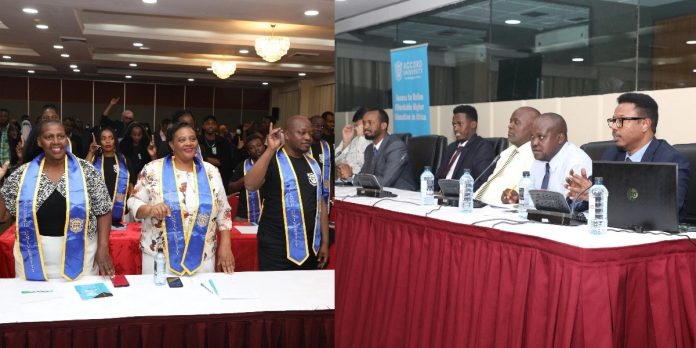- The second Accord Symposium on Online Learning was held on Thursday, September 22, at the Kenya International Conference Centre, Nairobi. Accord University Vice Chancellor, Prof. Abdulkadir Mohamed, welcomed all before giving the opening remarks, followed by keynote speakers Dr Charles Ondoro, Dr Martin Okode, Mr Bashir Hassan and Prof. Nabhit Kapur, who all offered innovative solutions and persuasive discussions geared toward advancing affordable and accessible higher education through e-learning.
Vice-Chancellor Mohamed reaffirmed Accord’s commitment to transforming Africa’s Online Learning landscape and identified Online Higher Education as the practical answer to open doors and remove barriers for Africa’s expanding youth to access higher education.
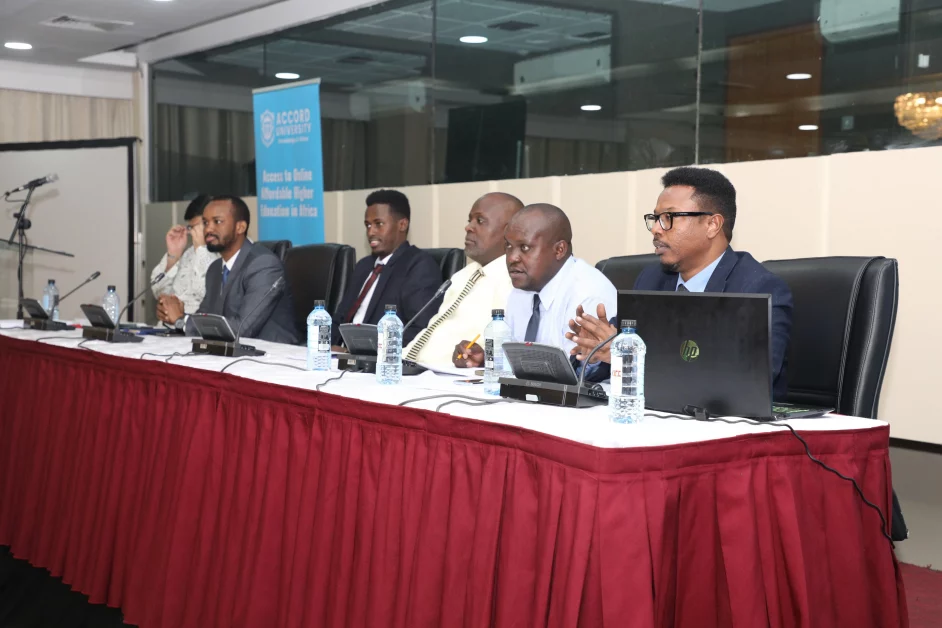
“As Accord we are willing to transform the e-learning in Africa to affordable sustainable and accessible education for Africans in line with the UN Sustainable Development Goals,” The Vice-Chancellor remarked.
“As Donna J Abernathy, editor of Training and Development Magazine wrote: Online learning is not the next big thing, it is the now big thing. Africa is the fastest growing content in the world. Over 40% of Africans are under 15 years of age. E-learning is the magic solution to provide higher education for all Africans now and in the future,” Accord University faculty member, Dr Ondoro observed.
“With online education, the sky is the limit, our institution has faculty from over 80 different countries. We consider the world as one country and promote a global village where anyone has access to any institution they want in the world, thereby bringing about more equality and quality at the same time,” Prof. Mohamed said.
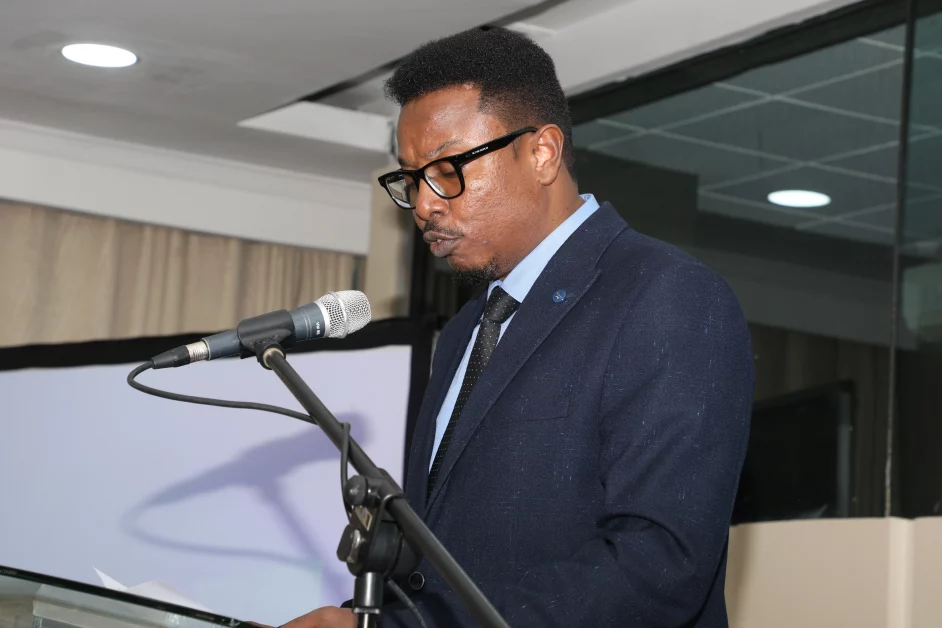
Picking up from the inaugural Accord-Symposium held earlier this year in February, the event offered an array of experts on e-learning platforms and enthusiasts of digital technologies from India, Somalia, Ethiopia, Uganda, Djibouti, South Sudan, the Democratic Republic of the Congo, and the host country Kenya.
Representatives from a number of diverse organizations including Accord University itself, Peaceful Mind Foundation, Somali Magazine, Nutritech Solutions, The Smile Foundation, Somali Student’s Association, Islaah Youth Organisation and Yusofa foundation, were in attendance among other distinguished guests.
Dr. Okode, while breaking down online learning principles and objectives, said the world had come to the realization of the immense benefits flexibility provided in terms of enabling more people to continue pursuing higher education.
“The world has come to the realization that flexibility is what allows the balance between workplace and personal life and promotes lifelong learning opportunities for all,” he said.
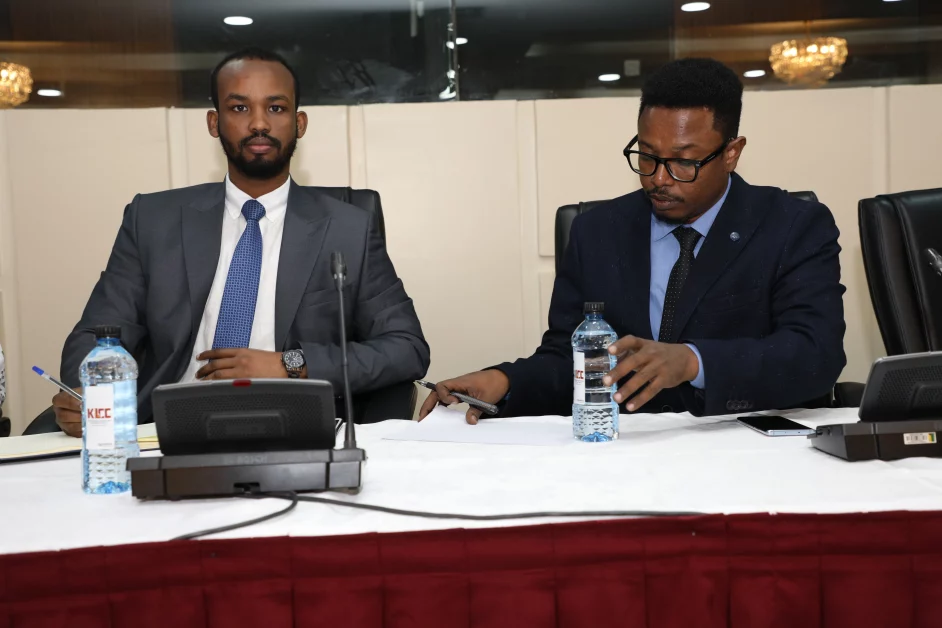
Prof Nabhit Kapur, founding president of Peaceful mind foundation, who currently serves as the advisor to World Fund for development and planning for sub Saharan Africa , touched on the impacts of distance learning on people’s mental and social health.
Kapur, as a mental health advocate and psychologist, reiterated the need for mental health and wellbeing to be taken seriously especially following the effects of COVID-19 pandemic that revealed the fragility of the world’s psychosocial fibres, left jilted in its wake.
Prof Nabhit Kapur, founding president of Peaceful mind foundation, who currently serves as the World Fund for development and planning for sub Saharan Africa, touched on the impacts of distance learning on people’s mental and social health.
Kapur, as a mental health advocate and psychologist, reiterated the need for mental health and wellbeing to be taken seriously especially following the effects of COVID-19 pandemic that revealed the fragility of the world’s psychosocial fibres, left jilted in its wake.
“I think mental health and wellbeing will be the next pandemic if it is not taken care of,” Kapur observed.
Kapur also gave an example of Finland, which prioritizes the well-being and happiness of its citizens above economic gain that disregarded social well-being and psychological security.
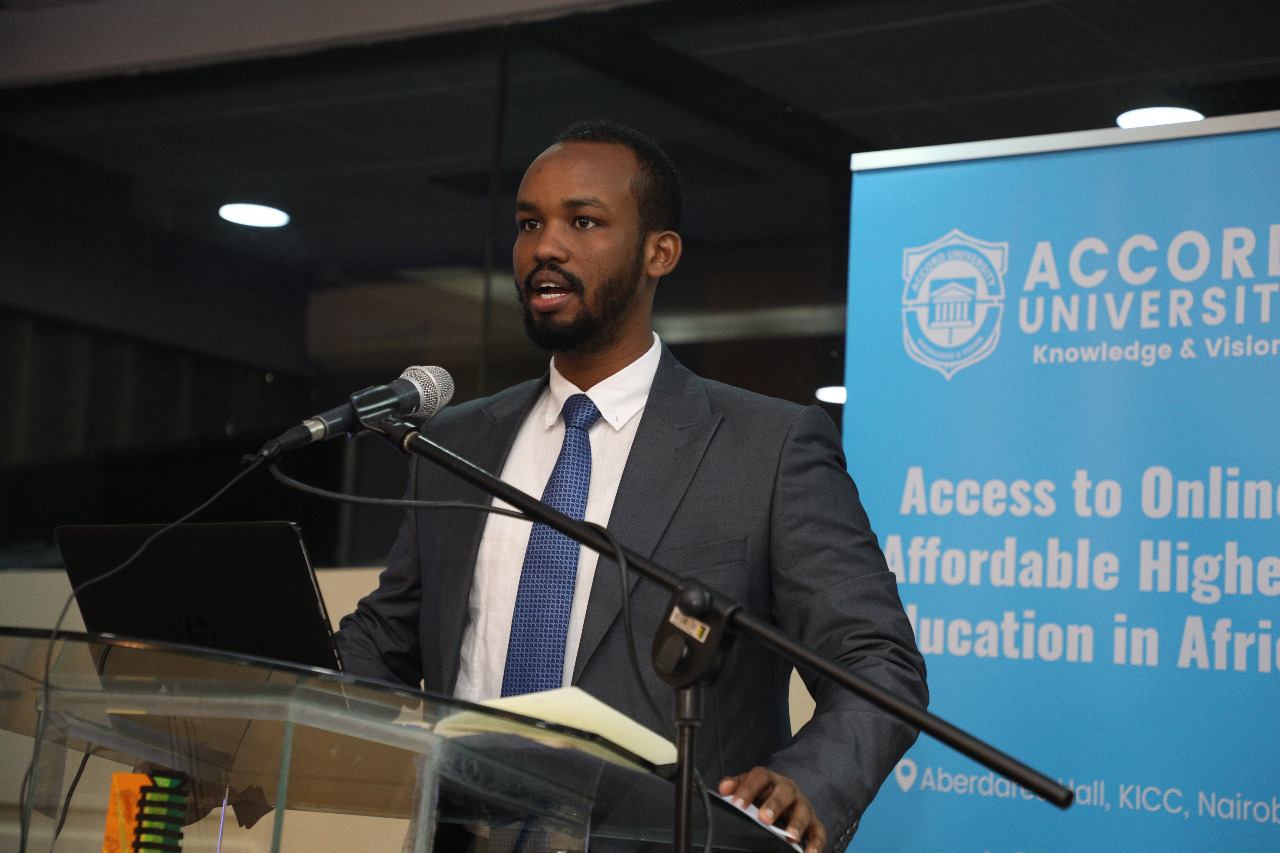
The Importance of Online Higher Education in Africa was Mentioned by Mr. Ridwan Yusuf “Since more students are becoming aware of its advantages, it is not surprising that demand for online education is rising. Flexibility, cost, enhanced skill sets, and a better school-life balance are all benefits of online learning. Students can continue to work, look after their children, or just put their own needs first. Online education also allows you to study or teach from any location in the world. As a result, there is no need to keep a strict schedule or commute from one location to another. In addition, you save money, which may be used for other goals, in addition to saving time “.
Source: Switch Media

